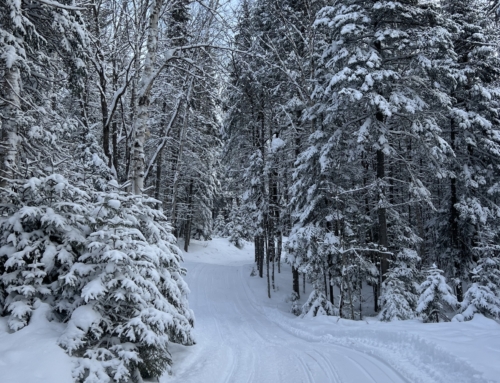
If you have a bear conflict and need immediate attention
In Long Lake NYS Forest Ranger Melissa Milano 518-312-3982
Or call ECO Jared Newell (518) 257-9690
Bear encounters that include any break ins or property damage should be reported to Ray Brook NYS DEC Region 5 by calling NYS DEC Region 5 Dispatch to report 518-897-1326 and press 5.

To minimize the risk of a bear encounter the NYSDEC recommends taking your garbage to the transfer station daily.
Do not store garbage in cans outside of your homes.
Remove Bird Feeders
Secure Garbage to Prevent Human-Bear Conflicts.
Clean all outdoor grills, do not leave any residue behind
Do not store or leave pet food outdoors
Bears are opportunistic feeders and will remember where they find easy food, then return to that location frequently
Intentionally feeding black bears is illegal.
Anything with an odor can attract a bear.
Mask garbage odors with ammonia soaked rags
Remove grease cans and filters after each use
Do not operate fridges outside or on outdoor porches -bears can smell what is inside
While camping:
Keep your campsite as clean as possible
Do not leave coolers or food out at any time.
Do not keep food or scented items in your tent
Treat toiletries as food items.
Clean up after meals immediately.
Keep pans/pots/utensils clean when not in use
Do not put grease, diapers, cans bottles or other refuse into a campfire
In Backcountry
Use Bear Resistant Canisters – Hoss’s has some available to rent or purchase
Pack and eat a minimal amount of food
Cook and eat before dark
Cook away from your campsite
Be neat and clean while cooking, avoid spills
Avoid leftovers
Never leave food unattended
If you have a human/bear conflict
Some situations call for DEC Wildlife staff to go afield to assess or resolve the problem. These situations include bears causing serious property damage, entering homes or buildings.
If you have a bear conflict and need immediate attention
In Long Lake NYS Forest Ranger Melissa Milano 518-312-3982
Or call ECO Jared Newell (518) 257-9690
Bear encounters that include any break ins or property damage should be reported to Ray Brook NYS DEC Region 5 by calling NYS DEC Region 5 Dispatch to report 518-897-1326 and press 5.

To immediately deter a bear that may be approaching your home
Add noise from a radio, a barking dog or lights and noise activated by a motion detector such as a Critter Gitter may assist in deterring bears.

Bears are often attracted to the proximity of homes by the odors and availability of foods, garbage, compost, bird feeders, pet food, gardens or barbecue grills. Once accustomed to being near homes, some bears are attracted into the homes by the same odors.
Black bears are extremely adept climbers and readily seek refuge in a tree. Whether frightened by humans, dogs, noise or any other unnatural activity, treeing is a normal escape/danger reflex, especially for younger bears. Bears do not get stuck in trees, and can (and will) come down when they determine that the danger or threat no longer exists. The presence of curiosity seekers is perceived as a threat to the bear, and accordingly, the bear will remain in the tree until such time as they believe that the threat has passed.
Normally shy and secretive, black bears will often go to great measures to avoid contact with humans. However, there are instances where bears do not or cannot avoid coming into proximity with humans.
Whenever it is possible, remove any food attractions, followed by a thorough sanitizing of the area with ammonia or other disinfectant. The landowner should be prepared to follow up with indirect negative conditioning (noise devices of duration such as hand held air horns, banging pots together or electronic motion detectors with audible noise making attachments).
Always recommend double-bagging garbage and placing in a clean garbage can with an air freshener or an ammonia-soaked rag. Remember, garbage cans by themselves are not secure enough to deter a bear. Suggest storing garbage cans inside a building away from windows and doors. A screen porch is not adequate.
Frequently remove garbage from the premise. Advise the homeowner to take all garbage to the normal final disposal area as frequently as possible, especially during warm weather. Bears are most likely to seek garbage from April through November.
Bears quickly learn to look for garbage in any plastic bag or garbage can.
Grills:

When dealing with portable gas or charcoal grills, the attraction is easily reduced by cleaning and relocating the grill to a secure location.
If a bear approaches or is observed in the area of a barbeque grill when people are present they should make noise from a safe distance to scare the bear away. There are usually pots, pans, metal cooking utensils and a variety of other devices present to make loud noises of duration.

Sometimes bears merely mark wooden structures by scratching, biting and rubbing against the building. A mixture of ground cayenne pepper and egg whites painted onto the surface or hot pepper wax insect repellent sprayed onto the surface has been known to stop marking by bears.
Sometimes a bear will break into a structure that contains no attractant and no attracting odors. If this is actually the case, the bear probably has an extensive history of finding food in similar structures. Such bears seldom return to structures where they obtained no food, but will continue to explore other structures. This is a community problem.
Information collected from, “NEW YORK STATE BLACK BEAR RESPONSE MANUAL” Third Edition, Produced March 2000. Access 7/12/2022
For complete guide link here:
https://www.dec.ny.gov/docs/wildlife_pdf/bearsopm.pdf
MORE INFORMATION FROM THE NYS DEC WEBSITE
Link Here: https://www.dec.ny.gov/animals/6995.html






